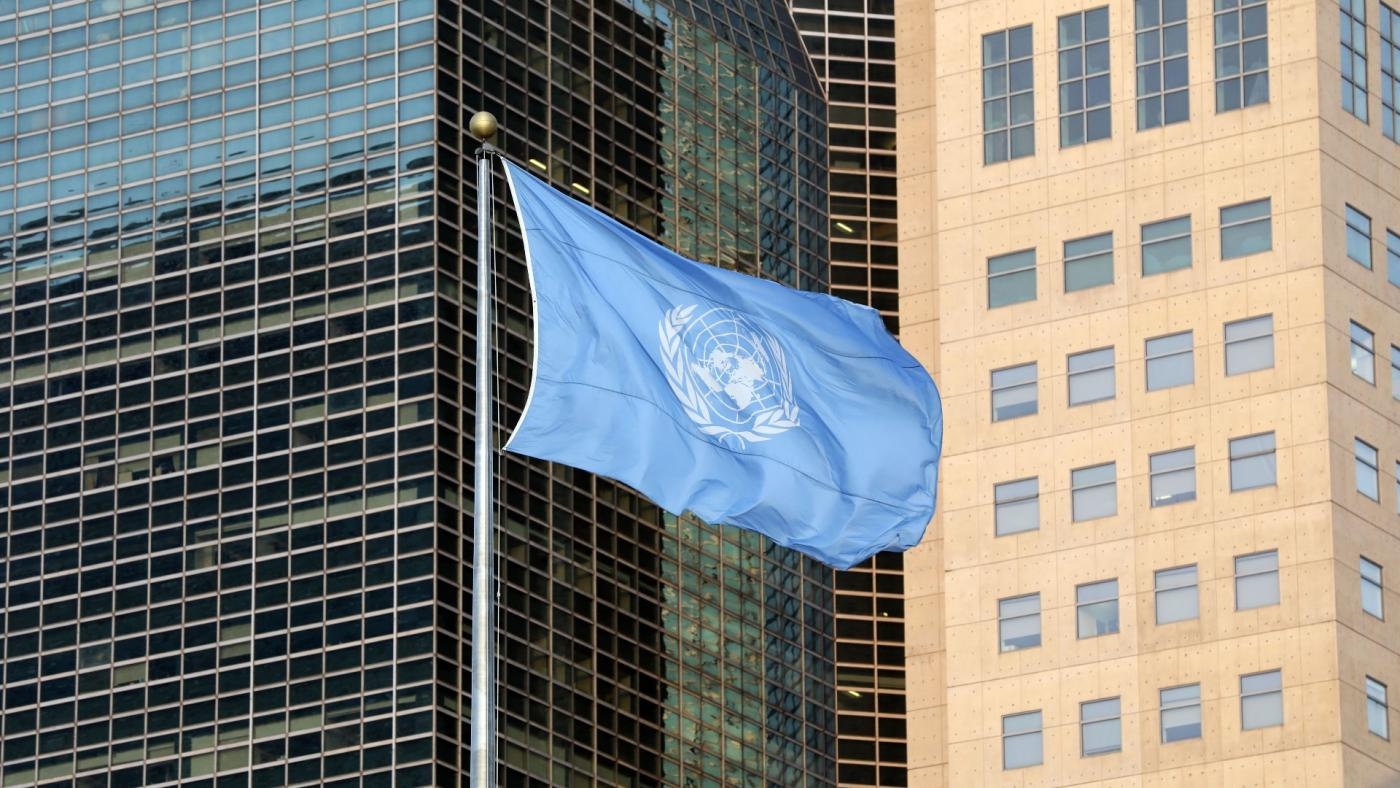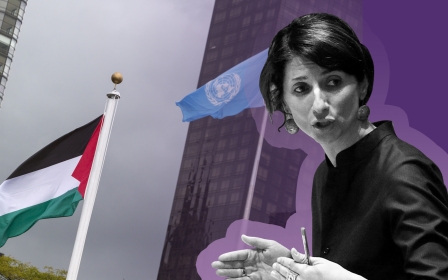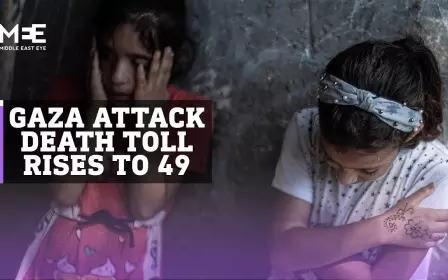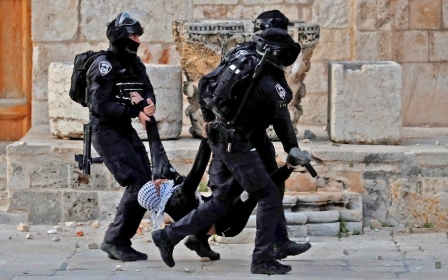NGOs back UN commission investigating Israeli discrimination against Palestinians

More than 50 human rights organisations have called for an end to the "pressing attacks" being mounted by the United States and Israel on the United Nations commission investigating racial discrimination and repression against the Palestinian people.
Last year, the UN Human Rights Council (HRC) established an "ongoing" international commission of inquiry to investigate Israeli violations of international humanitarian law.
'Israel, backed by the United States, has always sought to undermine or sabotage commissions of investigation from the United Nations'
- Professor Norman Finkelstein
The rights groups, many representing and acting on behalf of Palestinians, pledged their "full support" for the UN Commission of Inquiry on Palestine, which they said has been facing "mounting attacks" led by Israel.
The letter went on to say that the UN commission has been facing a smear campaign with baseless accusations that members were anti-semitic and calling for its "disbandment".
New MEE newsletter: Jerusalem Dispatch
Sign up to get the latest insights and analysis on Israel-Palestine, alongside Turkey Unpacked and other MEE newsletters
"The intense attacks come in light of the unique and historic mandate of the present Commission, the first permanent UN investigative body with a comprehensive mandate covering colonized Palestine," the latter added.
Israel and Egypt have sought to stifle the commission's work by blocking entry into the occupied Palestinian territories of the West Bank and Gaza to carry out its mandate.
Professor Norman Finkelstein, the author of many books on the Israeli-Palestinian conflict, said "there is nothing new here".
"Israel, backed by the United States, has always sought to undermine or sabotage commissions of investigation from the United Nations," he told Middle East Eye.
"The best-known example was the Goldstone report which Israel and [the] US worked assiduously to kill," added Finkelstein.
"The challenge these reports have is that they lack enforcement power," he said. "What is also needed alongside such commissions is a "political movement and political leadership that can use those instruments to galvanise public opinion".
The broader challenge the Palestinians have, warns Finkelstein, is that while they have accrued many "paper victories" with UN resolutions, human rights reports, and other international rulings, they have found it challenging to translate these victories into facts on the ground.
"Israel always takes advantage of opportunities. It now sees an opportunity to weaken the commission. Right now, it sees that the media is preoccupied with Ukraine and Taiwan - so why not kill a Palestinian leader and mow the lawn again in Gaza?" he said.
"Israel never passes up an opportunity to kill Palestinians, it really doesn't," he claimed. "It's the same thing here, the Palestinian cause is weak at the moment and there is little regional support."
Anti-semitism allegations
The latest pressure on the body comes after Commissioner Miloon Kothari gave an interview chastising Israel for not cooperating with the UN investigation, adding that if Israel wants to be part of the UN, it has to abide by its rules.
"I would go as far to raise the question of why are they even a member of the United Nations, because the Israeli government does not respect its own obligations as a UN member state. They in fact consistently, either directly or through the United States, try to undermine UN mechanisms," he told Mondoweiss.
The commission's primary critics, Israel and the US, pounced on the statement as evidence of the body's apparent bias. One pro-Israeli organisation went as far as to accuse Kothari of questioning Israel's right to exist and of anti-semitism, charges he denies.
The unique setup of the UN commission of inquiry has infuriated the US and Israel. The mandate is not time-limited or subject to renewal, preventing its closure due to intra-state horsetrading or pressure being applied to states to close it.
Neither is the inquiry restricted to the immediate circumstances that led to its formation, which are the suppression of peaceful Palestinian protests and Israel's subsequent military attack on the Gaza Strip in May 2021, and the killing of 256 Palestinian civilians.
Instead, the inquiry has been explicitly instructed to take its time and examine the "underlying root causes of recurrent tensions" in the occupied Palestinian territories and Israel.
In a letter defending Kothari, the chair of the UN commission Navi Pillay highlighted Israel's refusal to cooperate with the commission and "abide by its international obligations to end the occupation and fulfil the right of Palestinians to self-determination".
In their letter defending the UN commission against attacks, the human rights organisations warned Israel has a "record" of non-cooperation with investigative and fact-finding UN bodies.
The tactic used by Israel includes "preventing the entry into Palestine, leading organised lobbying efforts against such bodies, and engaging smear campaigns accusing the bodies of bias and 'antisemitism'".
"As such, the latest attack on the mandate of the CoI is a continuation of Israel's systematic efforts to shut down internationally mandated accountability mechanisms," the letter warned.
Just a few weeks ago, the Israeli Prime Minster Yair Lapid, in a letter to the United Nations Secretary-General Antonio Guterres, demanded "the immediate removal of all three members of the Commission of Inquiry tasked with investigating Israel, and the disbanding of the Commission."
The US has also operated in lockstep with its long-time ally Israel. In June, it corralled 21 other countries accusing the commission of giving Israel "disproportionate" attention.
Such attempts at pressuring the UN body to carry out its work are anecdotally at least chipping away at the commission's ability to carry out its mandate.
Members of the commission were hesitant to speak to MEE on the record, fearing that anything they might say could be litigated and spun by its critics.
Middle East Eye delivers independent and unrivalled coverage and analysis of the Middle East, North Africa and beyond. To learn more about republishing this content and the associated fees, please fill out this form. More about MEE can be found here.




